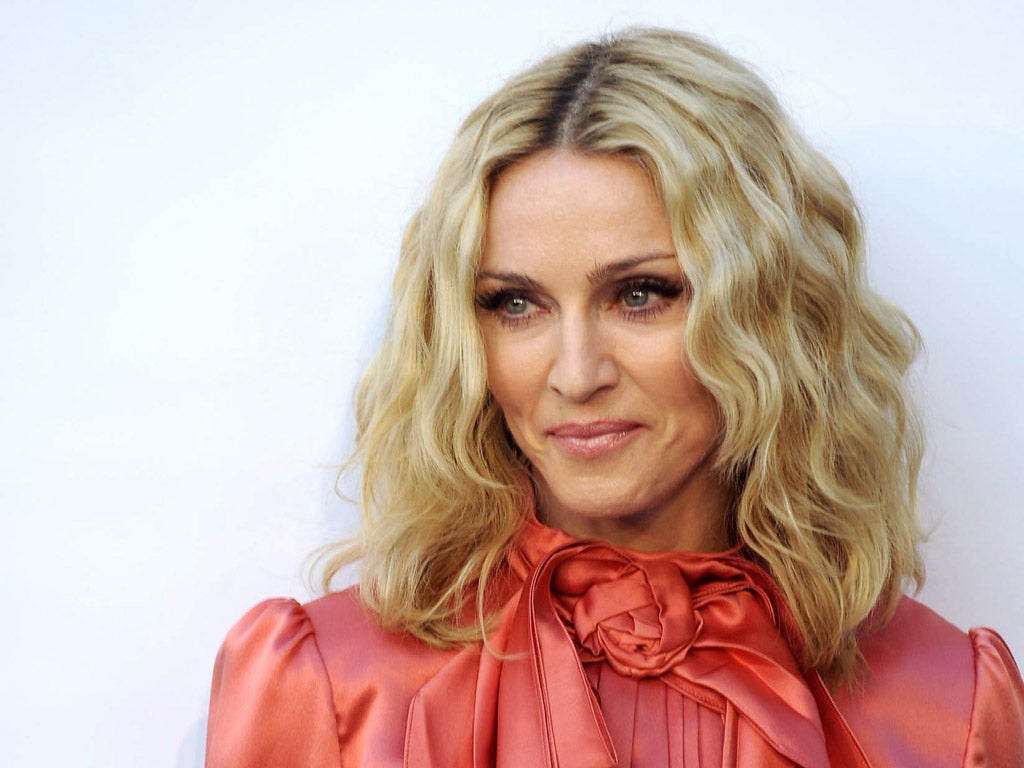Madonna’s rape is her truth and tragedy. And she has the right to speak about it
Comments included “sounds like fiction” and “it’s kind of hard to feel sorry for her”

It’s unfashionable to applaud pop stars off-stage; especially those who are a tad sanctimonious and charge a hundred quid for a ticket to your local enormodome. But as sure as I know she will never release another single as good as Borderline, I know that we should be saluting Madonna for speaking out this month about having been raped.
In clipped, almost glib style in US Harper’s Bazaar, she describes pitching up in New York as a 20-year-old and being “raped on the roof of a building I was dragged up to with a knife in my back.”
Madonna is not the only musician to reveal this kind of assault. Tori Amos was also raped at knifepoint; Rufus Wainwright was raped in Hyde Park; Fiona Apple was raped aged 12. These are just people we know about.
No star, however, has made sexuality their business and art form, such as Madonna. If sex has defined her, she has also redefined sex, perhaps in more ways than we understood.
It’s often been speculated that the untimely loss of her mother – also called Madonna, who died when her daughter was five – shaped a highly-sexualised, over-achieving persona. Her mother’s death is a tragedy that Madonna has often talked about; the rape is one about which she has not. For many women, it’s a life interruption that goes unspoken of. But looking back now, it seems to me that there is a palpable connection between surviving this crime and a life spent brandishing sexual power.
How do we react when someone tells us they have been raped? Comments on the tabloid site NY Daily News include “sounds like fiction to me”; “Yawn... still trying to be relevant Madge?” and “it’s kind of hard to feel sorry for her”. Madonna didn’t ask us to feel sorry for her. This is her truth, which she has the right to speak about. And if her fame is relevant here, it’s because of the thousands of women and men who have been raped - and some will be her fans. It may bring some hope to hear that Madonna, too, triumphed over this particular form of torture – and increased visibility of its hateful normalcy.
There is a crisis in how we understand and talk about rape, particularly the routine disbelief of those who say ‘it happened to me.’ To some, there are apparently no rapists, there are only people determined to clear their name, the victims of smear campaigns and fantasists. Yet 2013 figures suggest that 85,000 women are raped in England and Wales annually. I often wonder who is committing these rapes, when I hear that every accuser is lying, and everyone accused is falsely so.
When there is an internationally high-profile conviction, such as in the Steubenville case, in which teenagers recorded their crime on social media, we find reporters like CNN’S Poppy Harlow. Misty-eyed, Harlow bemoaned the loss of promising football careers for two high school boys. They were starting minimum sentences for raping a 16-year-old.
If ever an artist has been comfortable with exposure, in all senses, it has been Madonna. She has been relentless in her desire to shock, but what is truly shocking about this month’s events is that we’re still fighting this same fight, and still have such a long way to go. We need people to tell us when they have been raped, and we need to start believing them.

Join our commenting forum
Join thought-provoking conversations, follow other Independent readers and see their replies